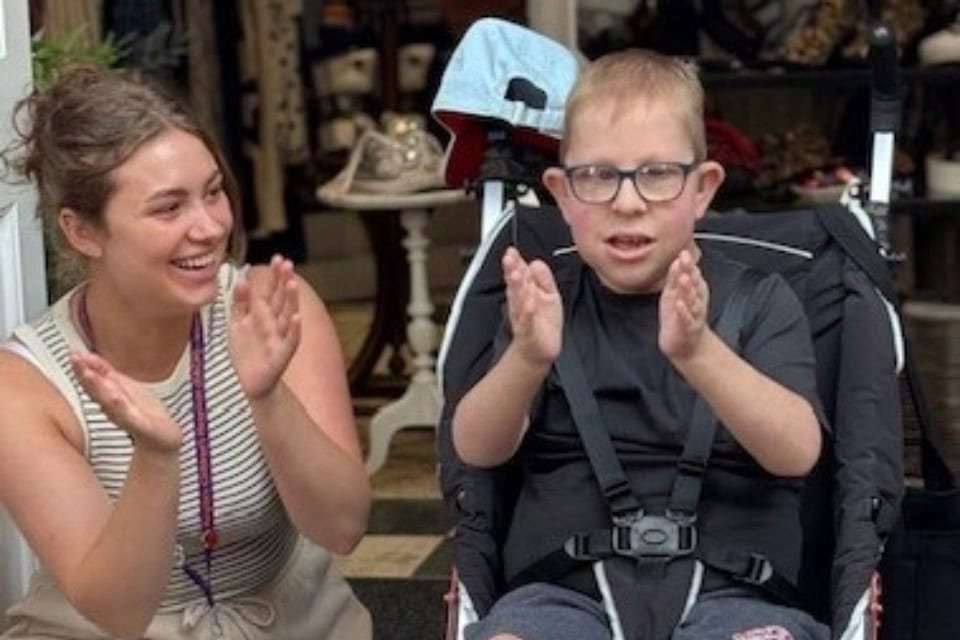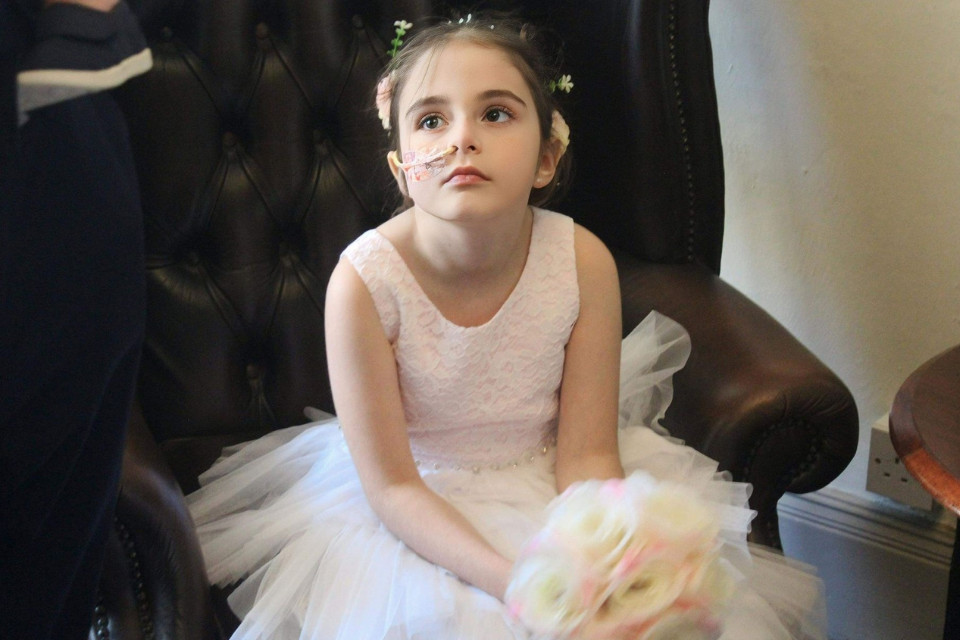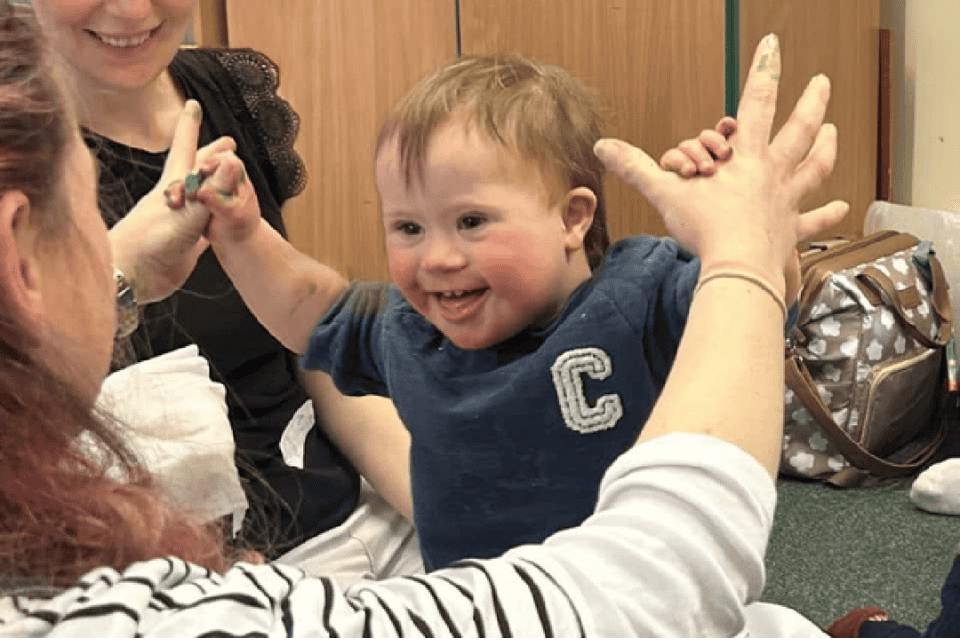Est. read time – 5-6 minutes.
Adamas Jasinauskas was a little boy with ocean-blue eyes and big, curly hair.
He was a three-year-old with a love for life, a curiosity of people and a passion for ball games. Born in May 2021, he was seemingly a normal, happy and healthy baby – a situation that was to sadly change dramatically.
After 14 months, parents Robertas and Egle noticed a spike in his temperature and thought their son looked pale, so contacted their GP. Due to the pandemic, it wasn’t possible for a face-to-face appointment, so they had to speak to their doctor on a video call instead. Adamas was prescribed antibiotics that appeared to work at first, and he was able to return to nursery.
However, on his first day back, the staff there called to report another high, feverish temperature. Egle picked him up, and, when back home again, she went to change his nappy – only to discover one of his testicles was swollen and blue. With it not being possible to see a doctor, Egle and Robertas rushed their son straight to A&E.
Adamas had tests and an ultrasound which ultimately led to the devastating news something was very wrong. He had a tumour on his kidney. Egle says she collapsed to the floor in shock. More scans followed the next day, and the couple were told to take their son to Addenbrooke’s Hospital, in Cambridge.
“We went onto the cancer ward, and I remember seeing children that had lost their hair because of treatment,” said Egle. “It hit me hard and was an incredibly difficult time. We ended up staying at the hospital for three weeks, during which time Adamas had numerous scans and biopsies.
“It was then he was diagnosed with neuroblastoma – a rare, aggressive and complex type of cancer most common in children under five. We were told the tumour was wrapped around one of his kidneys, and he started having chemotherapy.”
Sadly, Adamas’ treatment did not have the desired effect, and the next option was surgery to remove his left kidney. By now it was November 2022 – four months after his original diagnosis in the July.
The 11-hour operation went well, and the early signs were encouraging.
“They thought that by removing the kidney, they’d also got rid of all the cancer cells, which was the best news ever,” said Robertas. “Adamas was recovering well, and we thought our nightmare was over. Unfortunately, nothing could have been further from the truth, and, after another routine post-op scan early the following year, we were told the cancer was back – except this time more aggressive than ever. Another tumour was growing back from the cancer cells that had been left around his main blood vessels during the surgery. It was devastating.”
Adamas battled through high doses of chemotherapy, a dozen cycles of radiotherapy and immunotherapy over the next six months, but the cancer was too aggressive. It led to the news Robertas and Egle had been dreading. There was nothing more that could be done.
“They told us to take our son home, spend time with him and create memories,” said Robertas. “He continued to have chemotherapy, which managed the cancer and stopped it spreading, but they couldn’t get rid of the cells already ravaging his body. We were devastated but said ‘please don’t give up on our son. There must be something you can do’.”
As it transpired, through their own research and with help from a consultant, there was one last option – a final roll of the dice – that would involve Adamas being part of a clinical trial in Rome, called CAR-T. However, it is not funded by the NHS and would cost the couple £300,000.
“We didn’t have any choice but to try and raise the money – a crazy amount but the last thing we could try and do to save Adamas’ life,” said Egle. “We took to every social media platform in a desperate bid to get help, and, unbelievably, our story went viral. We had national media coverage, and Adamas united thousands of people around the world. Everyone wanted to be part of his journey and his fight against this horrendous cancer.
“Within eight weeks, we’d managed to raise the money, with donations coming in from across the world, from America to China and Germany to Norway. Our consultant was speechless and so were we.”
Thanks to the trial, Adamas’ chances of making a full recovery were rated at 62%.
The treatment began, with the initial stage involving collecting cells to send to America. They returned home and were told to come back six weeks later. When they returned, the process continued with an infusion of cells. Initially, it appeared things were going well, but then, following another temperature spike, the medical team wanted to see Robertas and Egle. They were given the devastating news the operation had been unsuccessful.
After returning home, Adamas began vomiting, and his parents took him to Addenbrooke’s. It was there they were told the cancer had spread even further. There was nothing more anyone could do, and the family were put in touch with EACH. They took their son home, and family members came to say goodbye.
“Our door was always open at that time, and people were constantly coming and going,” said Robertas. “Adamas lived for another nine days, before eventually passing at 4am on 1st September 2024.
“He really was the most beautiful boy, and we love talking about him. He was also very inspirational, and other families in similar situations have contacted us to ask about what we went through. It gave them the impetus to go public in their quests to raise money for treatment, rather than previously having been scared to ask for help. That’s part of Adamas’ legacy.”
Egle agrees and said: “His smile was contagious, and he was the most beautiful boy, both inside and out. He had the most gorgeous ocean-blue eyes and big, curly hair that everyone wanted to touch. People wanted to spend time with him, and he was very sociable, for such a young child.
“He’d talk to anyone, even if he was meeting him for the first time, and he had the power to bring the best out in people. He radiated light, and he’ll forever be in our hearts. Just because he’s not here to hug, our love for him hasn’t gone anywhere and it’ll never leave us. He still inspires us every day, and we’ll always be thankful he chose us as his parents.
“I strongly believe he was on a beautiful mission, to unite people and bring them together in a world full of hate, and we’ll be proud of him forever.”
Published in September 2025.







